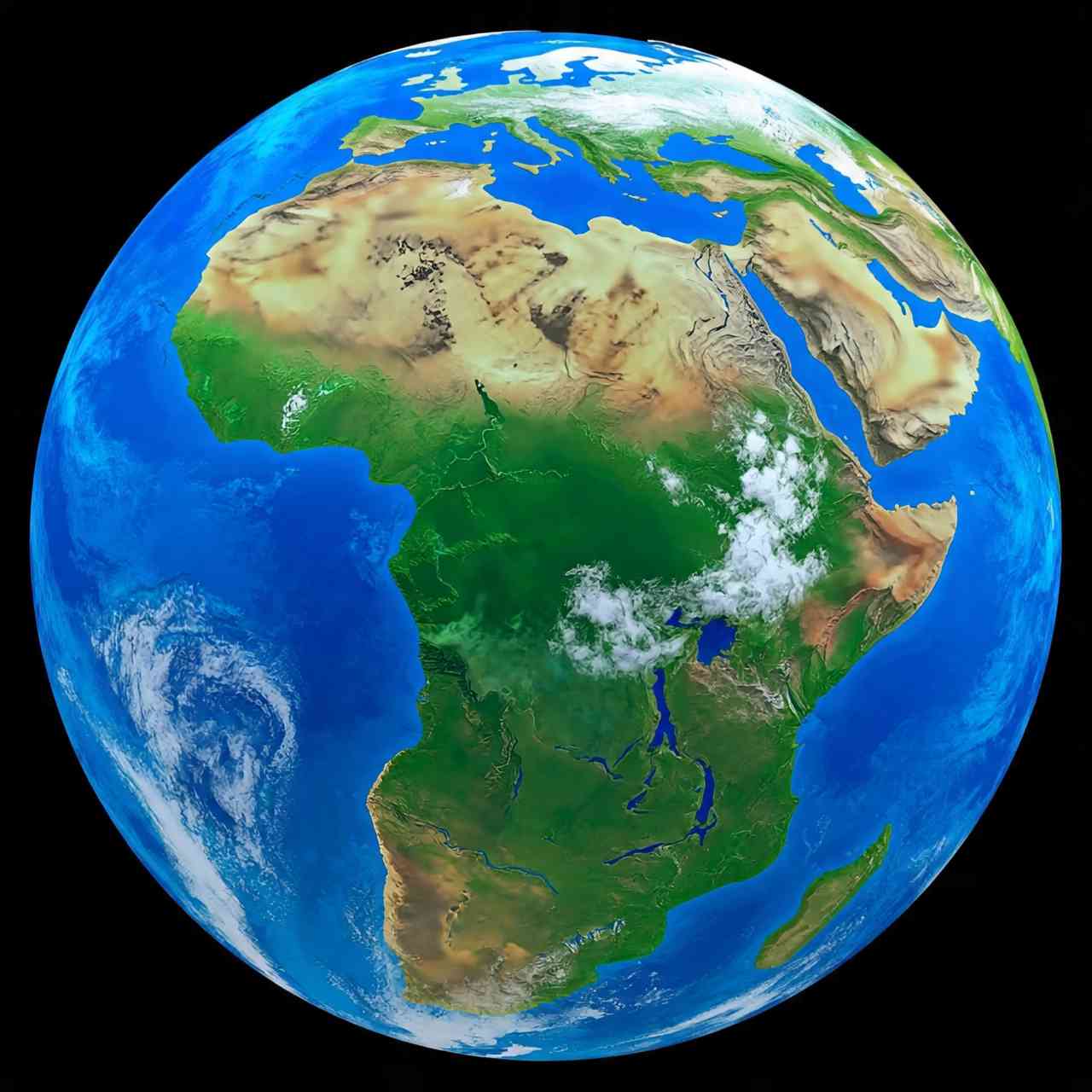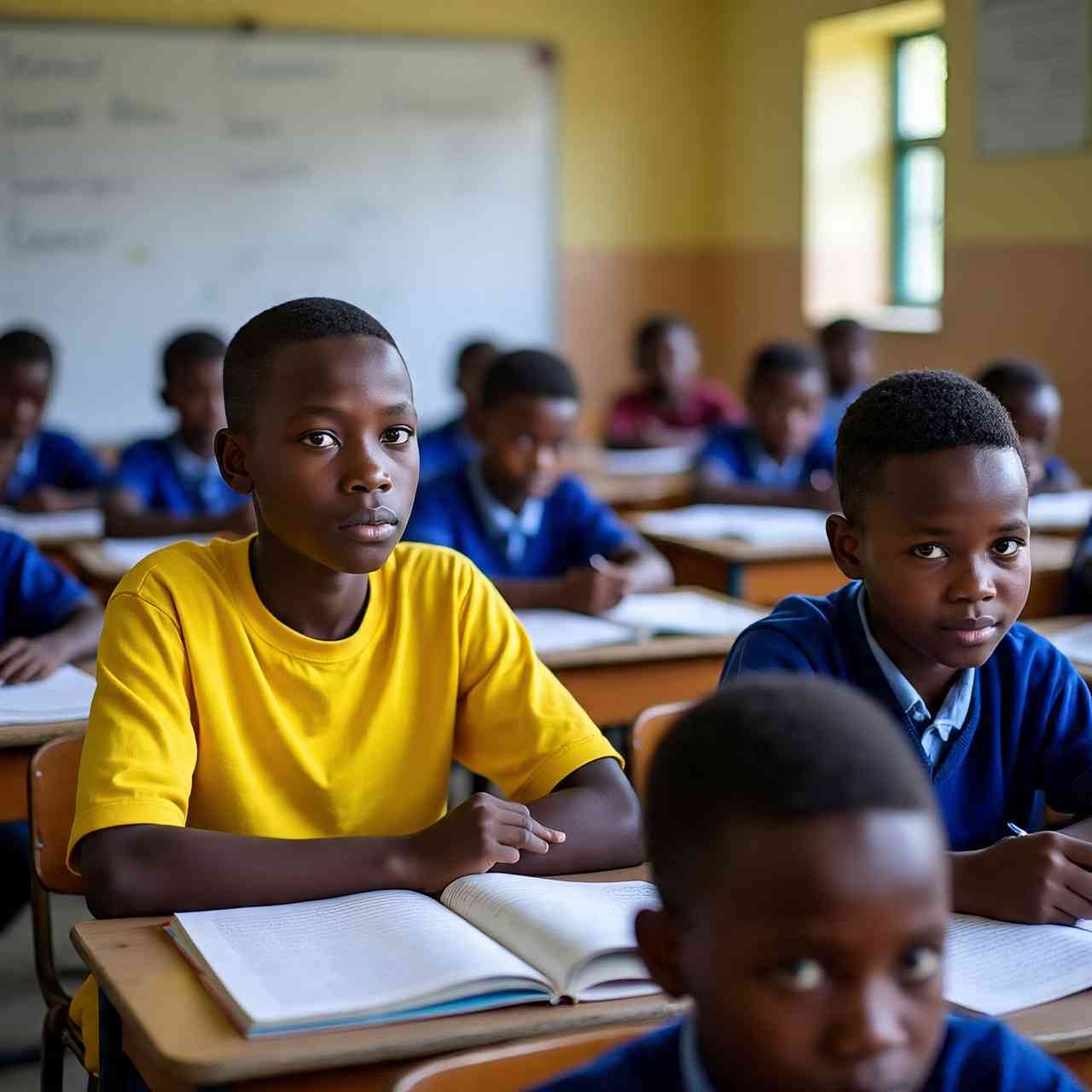(hr)
When people think of Africa, they often overlook the quiet revolutions happening in classrooms, libraries, and learning centers across the continent. One of the most impressive transformations has been in the area of (b)#literacy(/b).
(pic=aduploads/african-literacy.jpg)-African Students In Namibia(/pic)
Many African countries have made remarkable progress over the past few decades, thanks to strong education policies, bold leadership, and a growing commitment to empowering citizens through knowledge.
(br)
Let’s take a more relaxed walk through the (b)top ten African nations(/b) leading in literacy and explore how they got here, who led the charge, and what’s next.
(hr)
(b)1. Seychelles – 96.2%(/b)
(img=aduploads/landscape/seychelles.jpg) Seychelles (/img)
At the top of the list, this island nation is a literacy powerhouse. Thanks to visionary leaders like former President (b)France-Albert René(/b), who invested heavily in free and compulsory education in the 1980s, Seychelles has built a robust and inclusive education system.
(br)Today, with schools offering digital tools and bilingual instruction (English and French), the country focuses on keeping its young population ready for global opportunities.
(br)Looking ahead, Seychelles is leaning into (b)#onlinelearning(/b) and education tourism as part of its future strategy.
(hr)
(b)2. Equatorial Guinea – 95.3%(/b)
(img=aduploads/landscape/eqguinea.jpg)Equatorial Guinea(/img)
Equatorial Guinea’s rise in literacy is tied to oil wealth and the political vision however controversial of President (b)Teodoro Obiang Nguema(/b). Under his government, massive funds were poured into infrastructure and education.
(br)Despite criticisms on governance, there’s no denying the country made great strides in school construction, teacher hiring, and textbook distribution.
(br)As Equatorial Guinea looks to the future, it's aiming to shift from natural resource dependence to a knowledge-based economy.
(hr)
(b)3. Sao Tome & Principe – 93.75%(/b)
(img=aduploads/landscape/saotome.jpg)Sao Tome(/img)
This small island duo may be off most people’s radar, but they’ve achieved big things in education. Former president (b)Fradique de Menezes(/b) partnered with international organizations like UNICEF to tackle child education and adult literacy.
(br)The government promoted community-based schools and adult night classes especially in remote fishing villages.
(br)Now, the focus is on creating digital content in Portuguese and local dialects to make learning more accessible.
(hr)
(b)4. Namibia – 92.25%(/b)
(img=aduploads/landscape/namibia.jpg)Namibia(/img)
(li)Namibia’s journey is inspiring. After gaining independence in 1990, leaders like founding President (b)Sam Nujoma(/b) made education a central pillar of national development.
(br)Programs like the (b)#NationalLiteracyProgram(/b) and adult education initiatives helped citizens reclaim their education post-apartheid.
(br)Today, Namibia is investing in rural e-learning centers and bilingual education to bridge urban-rural divides.
(hr)
(b)5. Mauritius – 92.15%(/b)
(img=aduploads/landscape/mauritius.jpg)Mauritius (/img)
Mauritius stands out for its multicultural and multilingual approach to education. Under Prime Ministers like (b)Sir Anerood Jugnauth(/b) and (b)Navin Ramgoolam(/b), the government built a solid education system blending French, English, and Creole instruction.
(br)With universal primary education long achieved, Mauritius is focusing on (b)#inclusiveeducation(/b), ensuring children with disabilities and those from underprivileged backgrounds aren’t left behind.
(br)They’re also investing in AI and tech literacy for a future-ready workforce.
(hr)
(b)6. Cabo Verde – 91%(/b)
(img=aduploads/landscape/cape-verde.jpg)Cabo Verde(/img)
Cabo Verde (Cape Verde) is another island success story. Former President (b)Pedro Pires(/b) prioritized education reforms and international collaboration, and literacy climbed steadily.
(br)With high access to schooling and stable governance, the country is now developing digital classrooms, solar-powered school buildings, and distance learning tools to connect its remote islands.
(br)#Sustainability and #innovation are central to Cabo Verde's education goals.
(hr)
(b)7. Libya – 91%(/b)
(img=aduploads/landscape/libya.jpg)Libya(/img)
Despite its political turmoil, Libya has surprisingly high literacy. Much of that is due to the Gaddafi era, where Colonel (b)Muammar Gaddafi(/b) implemented a strict national literacy campaign in the 1970s and 80s.
(br)He mandated education for all, invested in books and Arabic language instruction, and improved adult literacy.
(br)Today, post-conflict Libya faces the challenge of modernizing its education system and restoring infrastructure but the foundation remains strong.
(hr)
(b)8. South Africa – 90%(/b)
(img=aduploads/landscape/southafrica.jpg)South Africa(/img)
As Africa’s most industrialized nation, South Africa has a complex but evolving education story. Leaders like (b)Nelson Mandela(/b) and later (b)Thabo Mbeki(/b) emphasized education as a means of transformation.
(br)Programs like the (b)#NationalReadingCampaign(/b) and (b)#FunzaLushaka(/b) bursary scheme for teachers are improving literacy at foundational levels.
(br)Despite challenges with inequality, South Africa is embracing #edtech and coding from early grades to prepare the next generation.
(hr)
(b)9. Zimbabwe – 89.85%(/b)
(img=aduploads/landscape/zimbabwe.jpg)Zimbabwe (/img)
One of Africa’s earliest education leaders, Zimbabwe’s literacy boom began under former President (b)Robert Mugabe(/b), who prioritized education soon after independence in 1980.
(br)Though his legacy is controversial, the investment in universal primary education and teacher training paid off.
(br)Today, Zimbabwe aims to align its education with the (b)#jobmarket(/b), placing emphasis on vocational training and entrepreneurship.
(hr)
(b)10. Botswana – 88.5%(/b)
(img=aduploads/landscape/botswana.jpg)Botswana (/img)
Botswana has quietly built one of the most stable and well-governed education systems in Africa. With the leadership of Presidents like (b)Seretse Khama(/b) and (b)Festus Mogae(/b), the country funneled diamond revenues into free primary education and teacher training.
(br)Botswana continues to push for more #digitalaccess in schools and has launched #techinitiatives for youth empowerment and economic diversification.
(br)Education remains a national pride and a tool for shaping the country’s future.
(hr)
(h1)What's Next for Literacy in Africa?(/h1)
(hr)
From islands to inland nations, these African countries prove that literacy is not just about reading, it's about access, opportunity, and leadership. As they continue to invest in #digitallearning, #vocationaltraining, and inclusive systems, the future looks bright.
(br)
Young people across Africa are more connected than ever, and with the right tools and visionary leadership, the next literacy revolution may just be around the corner.
(b)#AfricaRising #LiteracyMatters #DigitalAfrica #LeadersOfChange(/b)









